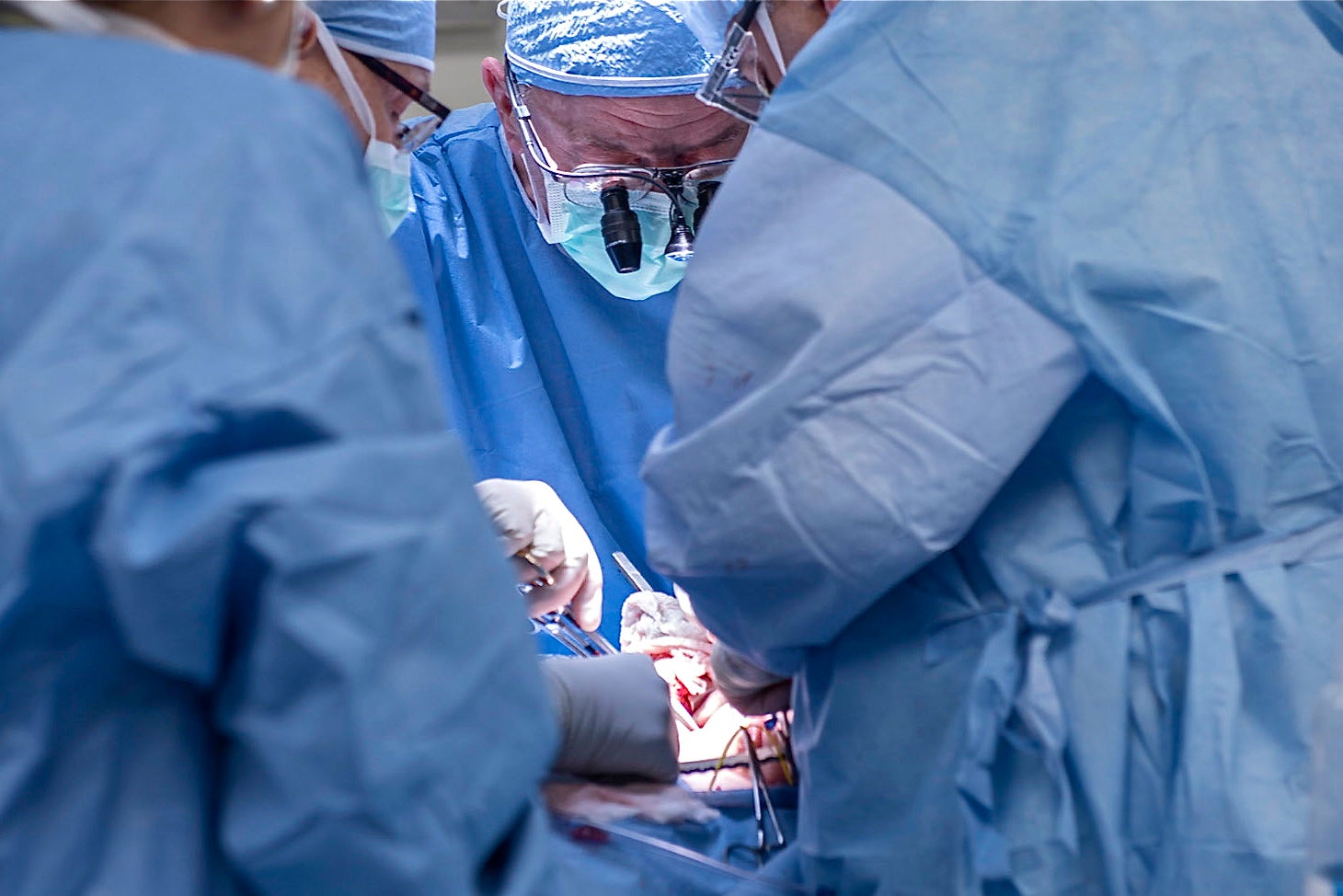Transgender Women And Childbearing: A Children's Hospital Community Activist's Perspective On Uterine Transplants

Table of Contents
The Desire for Biological Motherhood Among Transgender Women
For many transgender women, biological motherhood holds profound psychological and emotional significance. It represents a powerful affirmation of their womanhood and a desire to create and nurture life in a deeply personal way. The growing number of transgender women seeking options for biological childbearing highlights this powerful need.
- The limitations of current ART: Current assisted reproductive technologies (ART), such as IVF and surrogacy, present significant limitations for transgender women. Many lack the necessary reproductive organs for standard IVF procedures. Surrogacy, while an option, can be expensive and emotionally challenging.
- Navigating a complex healthcare system: Transgender women often face considerable challenges navigating the healthcare system regarding fertility options. Many healthcare providers lack the necessary knowledge and understanding of transgender reproductive health, leading to delays and barriers to care.
- Growing demand: The increasing visibility and acceptance of transgender individuals are leading to a greater number of transgender women seeking out and openly discussing their desire for biological children. This necessitates a reassessment of existing reproductive healthcare models to accommodate their specific needs.
Uterine Transplantation: A Potential Solution?
Uterine transplantation, a procedure involving the surgical implantation of a uterus from a donor into a recipient, presents a potential solution to the challenges faced by transgender women seeking biological motherhood. While still in its early stages, research shows promising results.
- Current status and success rates: Although uterine transplants are relatively new, research has shown some success in enabling pregnancy and childbirth for cisgender women with uterine factor infertility. The application of this procedure to transgender women is still in its experimental phase, with ongoing research exploring feasibility and safety.
- Ethical considerations and potential risks: Ethical considerations surrounding uterine transplantation are numerous and complex, including donor anonymity, consent, and the potential for long-term health complications for both donor and recipient. Thorough evaluation of these risks is crucial before widespread application.
- Donor availability and recipient selection: The scarcity of suitable uterine donors presents a significant hurdle. Rigorous screening and selection processes for both donors and recipients are necessary to ensure safety and successful outcomes. The ethical implications of donor compensation also need careful consideration.
The Children's Hospital Community Activist's Role
From a children's hospital community activist's perspective, advocating for access to innovative reproductive technologies like uterine transplants for transgender women is paramount. This involves multifaceted engagement:
- Community outreach and education: A crucial role involves educating the community, healthcare professionals, and policymakers about transgender health issues, fostering a more informed and supportive environment. This includes dispelling myths and misconceptions surrounding transgender identity and reproductive capabilities.
- Advocating for increased access to healthcare: Activism centers on advocating for improved access to comprehensive healthcare services, including fertility options, for transgender individuals. This involves working with healthcare providers, insurance companies, and government agencies to remove systemic barriers.
- Fostering inclusivity and support: Creating a welcoming and supportive environment within healthcare systems is essential. This means training healthcare providers on culturally competent care for transgender patients and promoting policies that ensure equitable access to services.
Addressing Ethical Concerns and Societal Perceptions
Open and honest conversations are crucial in addressing ethical concerns and societal perceptions surrounding uterine transplants for transgender women.
- Donor anonymity and consent: Maintaining donor anonymity while ensuring informed consent is a complex ethical challenge requiring careful consideration. Balancing the needs of the donor with the desires of the recipient requires a nuanced ethical framework.
- Societal biases and stigma: Addressing societal biases and stigma against transgender individuals is essential. Open dialogue and public education can help combat these prejudices and foster a more inclusive and accepting environment.
- Promoting understanding and acceptance: Open discussions about the ethical considerations, scientific advancements, and personal experiences of transgender women seeking motherhood are critical to promoting understanding and acceptance.
Future Directions and Research Needs
Future progress in uterine transplantation for transgender women hinges on continued research and development:
- Long-term effects: Further research into the long-term physical and psychological effects of uterine transplantation on both donors and recipients is crucial for ensuring patient safety and well-being.
- Improved surgical techniques: Ongoing efforts to refine surgical techniques and reduce the risks associated with the procedure will improve success rates and patient outcomes.
- Increasing donor availability: Innovative strategies to increase the availability of uterine donors, perhaps through advancements in tissue engineering and organ donation programs, are vital for making this technology more widely accessible.
Conclusion
The journey towards biological motherhood for transgender women is complex, highlighting the need for innovative solutions like uterine transplants. While ethical considerations and societal perceptions require careful attention, the potential benefits are significant. The perspective of a children's hospital community activist emphasizes the importance of community outreach, advocacy for increased access to healthcare, and fostering inclusivity. Further research into uterine transplant options for transgender women, improved surgical techniques, and increased access to uterine transplants are essential. The future of uterine transplantation for transgender individuals rests on collaboration between researchers, healthcare providers, activists, and policymakers to ensure equitable access to this life-changing technology and foster a supportive environment for transgender women in their pursuit of motherhood. Let us champion inclusivity and support for transgender women in their journey towards building their families.

Featured Posts
-
 Zolotaya Malina 2024 Dakota Dzhonson I Drugie Pobediteli Khudshikh Filmov Goda
May 10, 2025
Zolotaya Malina 2024 Dakota Dzhonson I Drugie Pobediteli Khudshikh Filmov Goda
May 10, 2025 -
 Federal Trade Commission Launches Investigation Into Open Ai And Chat Gpt
May 10, 2025
Federal Trade Commission Launches Investigation Into Open Ai And Chat Gpt
May 10, 2025 -
 Pakistan Economic Crisis Imfs 1 3 Billion Review And Current Events
May 10, 2025
Pakistan Economic Crisis Imfs 1 3 Billion Review And Current Events
May 10, 2025 -
 The Europa League Challenge Brobbeys Physicality To The Fore
May 10, 2025
The Europa League Challenge Brobbeys Physicality To The Fore
May 10, 2025 -
 Elon Musks Influence Tesla Stock Decline And The Impact On Dogecoin
May 10, 2025
Elon Musks Influence Tesla Stock Decline And The Impact On Dogecoin
May 10, 2025
